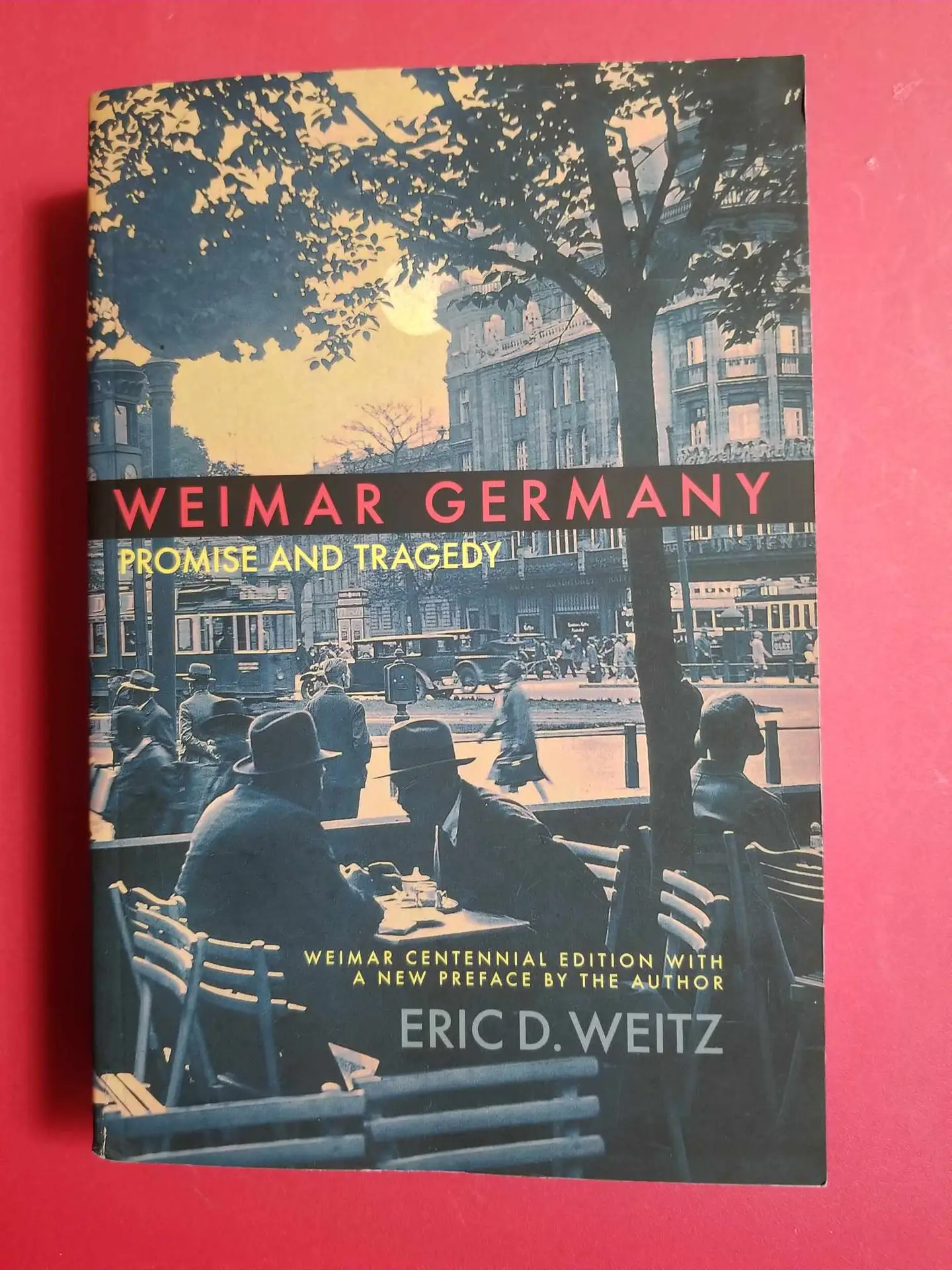
- Title: Weimar Germany, Promise and Tragedy
- Author: Eric D. Weitz
- Genre/Subject: History of Weimar Germany 1918 – 1933
- Publisher: Princeton University Press
- Publication Date: 2018
- Start date: 4/2/24
- Finish date: 4/15/24
Review:
A surprisingly engaging yet still scholarly history of Weimar Republic Germany. A rare bird indeed in the history book genre. You either get the tiktok quick read version or the omg did we need a whole chapter on the development of tweed trousers one. This was engaging from the first paragraph and while it did delve very deeply in a few parts on the whole it was concise and easily readable.
For those, like me up until I read this, who don’t know what Weimar Germany was, allow me to explain. Weimar Germany was the name of the Republic of Germany that was established after the armistice that ended World War 1. Or more accurately after the armistice AND the subsequent revolution in Imperial Germany. With the revolution they deposed the Kaiser and established a new Germany based on a constitution written up in a small town called Weimar, which subsequently lent its name to the new republic. The republic lasted only 12 years until the Nazi takeover in 1933 but in those years made tremendous contributions to art, architecture, gay rights, women’s rights, labor reform, music and many other areas that we still enjoy today in the western world.
The title of the book sums it up beautifully: promise and tragedy. So much promise that was tragically cut short by the rise of right wing authoritarians. Sound familiar?
But that is an oversimplification really. The left wing utopian ideals were unrealistic and many times unachievable. The attempts at coalition and more centrist governments rarely got past the starting gate. But this too is chillingly familiar.
Weimar gave us such visionaries as Walter Gropius and his Bauhaus school, Bertolt Brecht and Kurt Weill with their innovations in opera that led to what we now consider the Broadway musical, Thomas Mann shaping the face of early twentieth century literature, modern art, photography as a respected medium, and so much more. Universal suffrage, can’t forget that.
So what happened? Same thing always happens, people don’t like anything upsetting the status quo and form parties, cabals, coalitions, and even street gangs to preserve the way things are and push back to make them the way they used to be. If the great war was a tinderbox waiting for a match then Weimar was a vacuum waiting to be filled. Hitler obliged to fill the empty space and the rest of that story we already know.
Erudite, engaging and extraordinarily well researched this book had me hooked from the first page and never let me down. Most history books can not make this claim, so well done Mr. Weitz.
This book made me want to: Resist any and all of Danielle Smith’s reactionary “reforms”.
Overall rating: 



Readability: 



Plot: 



Other: 



 Outstanding research and engaging writing.
Outstanding research and engaging writing.


Leave a Reply